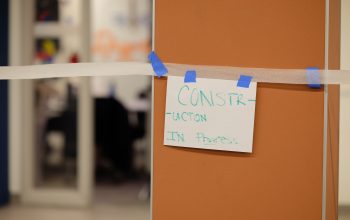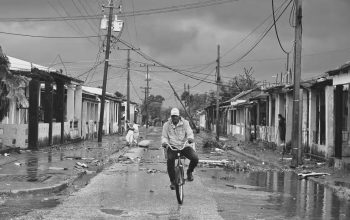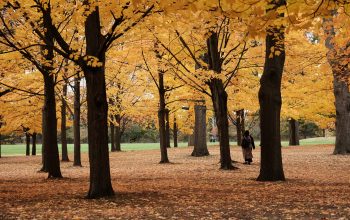Students from a variety of disciplines present research regarding City and Wilderness
Lara Connell CONTRIBUTOR
What is the relationship between the city and the wilderness? What roles do they play in technology, society, and faith? While January 26 brought frigid temperatures that forced many to stay indoors, members of the University of St. Michael’s College (USMC) community gathered for the 2019 Interdisciplinary Student Colloquium to consider questions such as these. The theme of this year’s colloquium, “City and Wilderness: Opportunities, Tensions, Responsibilities” provided a unique opportunity for both undergraduate and graduate students to present and engage with academic papers from a variety of disciplines.
The colloquium was organized by postdoctoral fellows Mary Cuff, Peter O’Hagan, and Tristan Sharp as well as doctoral candidate Shannon Wylie. Various members of the community were present including faculty members, staff, both undergraduate and graduate students, as well as supporting family members and friends. In his opening remarks, USMC President David Sylvester described the event and the students who participated in it as both inspiring and an occasion of pride for the college.
The event was divided into three panels, each composed of three students whose papers shared a subtheme relating to the larger theme of the “City and Wilderness.” The first of these panels focused on the role of the city, society, and modernity. Second-year student Maryrose Doucette started off the event with a paper that explored and reflected on American writer Rod Dreher’s controversial book titled The Benedict Option. While Dreher proposes in his book that Christians ought to retreat from secular society and focus on close-knit communities, Doucette questioned the author’s neglect to take into account the crucial role of evangelization in the life of a Christian.
In a similar fashion, first-year philosophy and mathematics student Neo Yin explored the meaning of “We” in his paper. He proposed that true connection can only be found in love. Ana Karen Garza, a second-year student studying environmental and political science, considered in her paper the relationship between humans and the environment and in particular highlighted the city as a representation of man’s dominance over creation.
Following the conclusion of each panel, faculty members Brian Butcher, Jean-Olivier Richard, and Stephen Tardif responded to the student’s papers and moderated the question period which provided audience members with the opportunity to engage with the student’s research. The first question period brought a surprise for Doucette when she received a question from Rod Dreher via Twitter, a result of the event being live tweeted.
The second panel focused on providing solutions to problems relating to the “City and Wilderness” theme. In a paper centred around her research regarding the Butterflyway Effect project, first-year Glennie LeBaron synthesized the ideas of the previous panels’ papers on the need for connection within communities and a new approach to our relationship with the environment. She proposed that the project, which focuses on building habitats for butterflies and bees, builds strong communities and fosters a sense of partnership with the environment.
The third panel modified the theme of the event, focusing on the Judeo-Christian narratives found in literature. Connor Kokot, a religion student specializing in Christian Origins, concluded the colloquium with a paper that examined the biblical narrative on the relationship between the city and wilderness. This relationship, he argued, is brought to fulfillment in the process of cultivating a well-ordered interior. This order can only be achieved when one answers Christ’s call to bear the fruit of love.
What likely began as simple questions in the mind of the student presenters blossomed into an opportunity to engage with questions that concern us all. In hosting such an event, USMC reaffirmed its commitment to providing students with the opportunity to present their research and ultimately grow in their pursuit of knowledge and truth.
As Principal Randy Boyagoda noted in his welcome, “In coming together for this discussion, we not only advance knowledge collectively, we also create platforms and pretexts for students from a multiplicity of disciplines, backgrounds, and levels to encounter each other and learn what it means to engage in advanced research for more than merely marks.”



